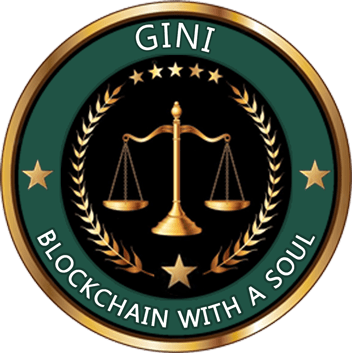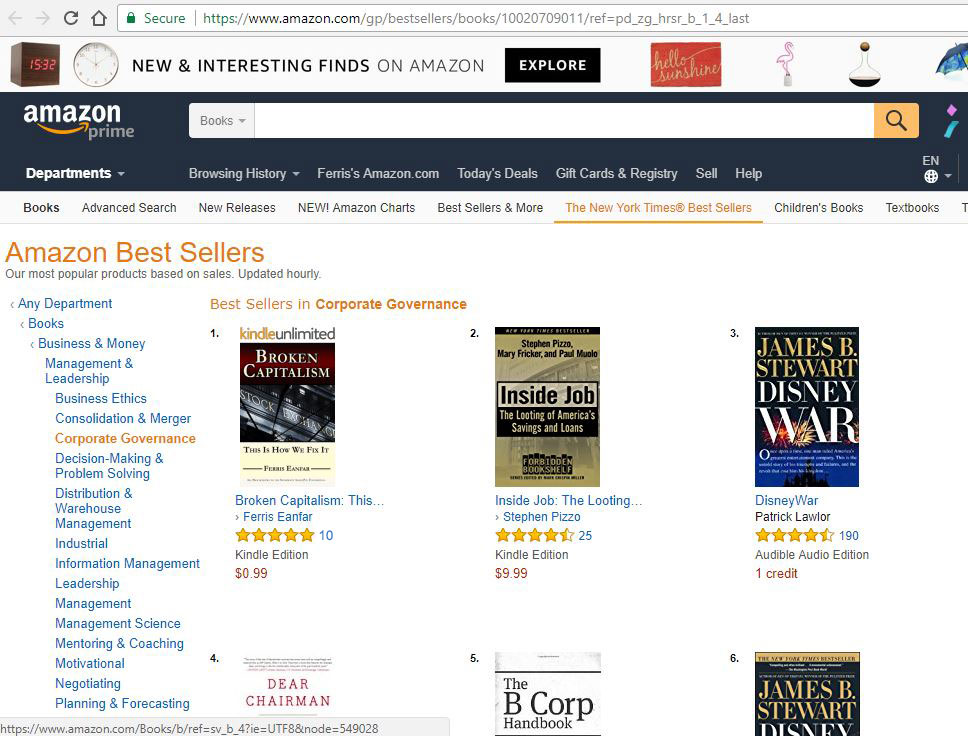Introduction to LibroGod. A friend of mine (I’ll call him LibroGod.) is an accomplished business person and a fanatical connoisseur of “important books.” LibroGod has collected thousands of physical books. He has developed a complex classification system to organize them according to his personal system of values, which he believes is the only meaningful way to organize such a precious trove of humanity’s intellectual manna. It’s impossible to determine how many of the books he has actually read, but he likes to invoke the size of his . . . library . . . whenever anybody disagrees with him on anything “important.” In this case, “important” means anything that has any connection to politics, philosophy, economics, history, human consciousness and intelligence. So, basically, everything in human existence.
Library Nerd Fight. LibroGod often says nice things to me about the way my brain works, but he is unimpressed with the size of my library because I only have approximately 1,000 books. Compared to his dead-tree monument to the literary gods, from his perspective, my puny library is a dimly lighted wart on the rump of a donkey. Of course, no self-respecting aficionado of good books is going to be told their library is inferior without a fight. So the following paragraphs summarize my response to his question, “What methodology do you use to evaluate and find your books?” and several other comments that he made. My response to him should be interesting to anybody who ever wonders how to determine the value of a “good book,” whether George Orwell’s “memory hole” has come true, how to perceive the “wisdom of the crowd,” and how to perceive the process of enlightenment within the context of our rapidly changing modern world.
How Many Books Are Needed to Achieve Enlightenment? How did Mozart, da Vinci, Beethoven, Michelangelo, Newton, Bobby Fisher, Pascal, Enrico Fermi, Einstein, Oppenheimer, Plato, Pythagoras, Nikola Tesla, Riemann, Siddhartha, Christ, Turing, Machiavelli, and many others develop their unique insights about their work and our world? Did they have to read 100s or 1,000s of books? Or, did their brains have the capacity to process, arrange, and synthesize information in ways that enabled them to reverse-engineer what they observed without having to depend on third-party book authors to interpret reality for them? Given that virtually none of those humans had access to 100s or 1,000s of books, and given that all of them are famous for having an ability to comprehend things that others could not comprehend, it’s clear that their wisdom and insights did not come from books.
Reading Books is One of Many Paths to Enlightenment. The historians, poets, and philosophers of the future will determine the merits of our contributions to this world and what species of genius each of us may be, but my point is this: My conscious awareness is only loosely correlated with the number of books I’ve read and the number of years I have lived. I’ve read hundreds (probably over 1,000) books and my education and life experience are obviously important factors, but books are much less important in my own analytical process than they seem to be for your analytical process. This is why I bristle when you make comments like “I’ve read thousands of books….” as a measure of your intellectual superiority or when you attempt to classify my knowledge and awareness in terms of what books I’ve read. There are many paths to knowledge, wisdom, awareness, and enlightenment. Reading books is only one path.
Knowledge is Useless without Purpose. We could study all the features of a single blade of grass for the rest of our lives and never learn everything there is to know about its molecular and subatomic structure, the chemistry and physics that dictate its response to external conditions and stimuli, etc. I learned at a young age that the quixotic notion that “knowledge is its own reward” is nonsense. Knowledge is only valuable to the extent that it improves our capacity to create new and practical value in our lives and to help us avoid harm from other creatures and events. If gasoline is not igniting controlled fires within your engine to propel you forward, it’s potential power is inert and useless. The same is true of knowledge.
The Memory Hole and Perishable Knowledge. My reading habits (which you asked me to explain) are always guided by purpose, not pleasure. I don’t derive pleasure merely from acquiring new knowledge (for the reasons above). Before I decide to read anything, I ask myself, “What do I need to know to accomplish x?” That yields a highly focused list of topics. Then I ask, “Can I figure this out on my own?” Then after I develop my own hypothesis about how a thing or process or historical event probably works, I ask, “Who is widely regarded as the world’s foremost expert in this area? How does their analysis differ from mine? Why does it differ from mine? What factors did they consider that I did not consider? Are their conclusions truly timeless or are they substantially dependent upon ephemeral contextual factors like time, space, culture, availability of technologies and resources, etc.” In almost every case, I can clearly see that knowledge in today’s world is perishable, but not because it’s slipping into a “memory hole.”
(Note: The “memory hole” is LibroGod’s favorite scapegoat for everything that is wrong with the world today. I suspect this is why he is fanatical about his library. If I want to save humanity from Broken Capitalism, then I suppose I should not begrudge anybody who wants to save humanity from the dreaded memory hole.)
A Western Memory Hole is Technically Impossible (For Now). Orwell’s “memory hole” is only a small part of what is causing problems in human societies on Earth today. In the Western world, it’s technically impossible for the memory hole to exist today. (In contrast, a real memory hole exists in many Eastern and Middle Eastern countries whose authoritarian regimes engage in widespread censorship.) Despite the increasing potential and high future probability of Western governments censoring large swaths of the WWW, virtually everything that has ever been publicly written or transcribed can still be found in Western search engines with a few mouse clicks. And there are millions of groups online and offline devoted to studying, exploring, and archiving almost every book and topic in human history.
Rapid Change Causes Fear and Insecurity. What you perceive as the “memory hole” is not primarily driven by government censorship or historical revisionism (But of course I know that happens, too, which I’ve already written about here and here and elsewhere.); it’s primarily driven by a more fundamental, decentralized sociological phenomenon: the fear, anxiety, and insecurity that nearly all humans worldwide are feeling today in response to rapid technological and socioeconomic change.
The Memory Hole Does Not Explain Broken Capitalism. Humans respond to fear-inducing changes in predictable ways: They engage in clan warfare, hoarding of resources, and gradations of fight-or-flight behavior. This translates into all manor of neuroses, bad decisions, ideologically-driven blindness, and well-intending but poorly executed government policies. And that’s before we even account for the bad-faith actions perpetrated by the “Transnational Cannibals” described in my book, special interest groups, and other malefactors in every society. So attributing everything that ails human societies to Orwell’s “memory hole” is a gross simplification of what is really happening on this planet today, which leads to incorrect diagnoses and incomplete (if not completely wrong) prescriptions about how to fix the swirling cloud of economic and social problems that I describe in my book as the “Toxic Cloud” and “Broken Capitalism.”
The Half-Life of Every Human Idea Decays Over Time. Whenever I’m thinking about what books to read and whether any given book is good nor not, I always remember that the accuracy and situational relevance of the conclusions of all book authors throughout human history are dependent upon multiple contextual and ephemeral factors. I ask myself, “Are those contextual factors ephemeral, and if so, do they typically change in a human lifetime, over several generations, or over geological timescales?” The answer to that question tells me how relevant their conclusions are to the specific purpose of my investigation of a given topic at any point in time. In many cases, even the most venerable authors of the past were writing during times that were so divorced from the rapidly changing dynamics on Earth today that the explanatory, predictive, and prescriptive power of their ideas has substantially decayed, just as the half-life of every element in the Universe decays over time.
Learning from the Wisdom of the Crowd. Finding “widely respected experts” to validate and/or refine our own ideas is easy if you understand how to distinguish between “the wisdom of the crowd” and “the uninformed mob.” Book recommendations on Amazon, Switzerland’s Direct Democracy, and prediction markets are all examples of effective crowd wisdom in action. However, many people with an elitist mindset have an instinctive and unjustified aversion to the “wisdom of the crowd” because they don’t understand the data and the reality of how wisdom in crowds actually works (see also Swarm Intelligence). Or, they benefit from the toxic status quo and are willfully blind to any data that confirms how crowd wisdom is superior to the idiotic, systemically corrupt decision-making processes that dominates so many American institutions today. Their unconscious fears, insecurities, and false assumptions about “mob passions” and “group-think” blind them to the obvious benefits of crowd-based (not mob-based) decision-making.
Tyrannical Individuals Are Far More Dangerous than Crowd Wisdom. Yes, group-think can sometimes lead to sub-optimal outcomes; and yes, destructive behavior has occasionally resulted from impassioned mobs, but far greater and more frequent destruction to human life and societies has occurred at the hands of self-assured tyrants who exploited and concentrated their power in direct opposition to what the wisdom of the crowd would have achieved. That is the rule, not the exception, of government tyranny and the destruction of human societies throughout human history. Virtually every war, every economic crisis, and every act of domestic household violence (i.e., virtually every bad human behavior at every level of society) can be directly attributed to the dictatorial and destructive human behavior of specific humans, not “the crowd,” group-think, or mob passions.
Crowd Wisdom Did Not Create Broken Capitalism. The so-called political and business leaders that control the largest U.S. institutions today are constantly making economically and socially destructive decisions precisely because they are pandering to corporate interests and ignoring the wisdom of the crowd. That means it’s not accurate to blame any social or economic problem on the crowd when the perpetrators of the most harmful actions in our society are concentrated within a self-serving political and financial circle of so-called elites who constantly ignore the interests and wisdom of the crowd.
For all those reasons and many more, neither the “memory hole” nor the “intellectual degradation of the voting population” are sufficient to explain what is destroying human societies and institutions on Earth today. In contrast, the principles in my Broken Capitalism book directly and substantially explain exactly what is eroding the value creation engine, democratic integrity, and social cohesion in every capitalistic society on Earth today.
Hopefully this explanation of my “methodology” clarifies how I approach the book reading and evaluation processes and how those processes translate into purposeful, conscious awareness in my life.

 Gini Website Coming Soon. We (
Gini Website Coming Soon. We (
